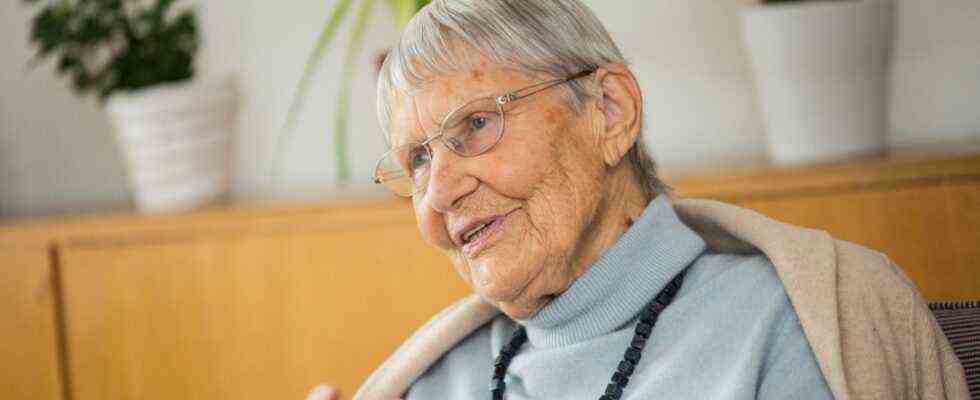“When I look back on my life, I have reason to be very grateful,” Inge Jens said in an interview in 2008. Now, a few weeks before her 95th birthday, she died in Tübingen.
She was born as Inge Puttfarcken on February 11, 1927 in Hamburg. She originally wanted to become a doctor, but was not allowed to study medicine. So she moved to Tübingen in 1949 and began studying literature. There she met Walter Jens, whom she married in 1951 – with Ernst Rowohlt as her spiritual best man. The famous publisher helped her with numerous books by “his” authors while working on her doctoral thesis on the expressionist novella.
Uwe Naumann is a book author and editor and editor at Rowholt-Verlag.
Just a few years later, she herself began to leave her mark on cultural history. Initially as editor: with books about the White Rose, about Max Kommerell and Ralph Benatzky, she provided important building blocks for the remembrance culture of the Germans. And their edition of the second half of Thomas Mann’s diaries set standards for entire generations of German scholars.
The readings that she organized with Walter Jens delighted her audience
But she did not see herself primarily as a writer, because she did not value her own narrative skills. She saw herself as an editor, always on the lookout for interesting documents. Unknown letters and diaries were also what made her a bestselling author: The book “Frau Thomas Mann”, which she published with her husband Walter in 2003, contained numerous new sources and was a sensational success. The biography “Katias Mutter” (2005) about the life of Hedwig Pringsheim also received a lot of attention because it captured a chapter of the great, lost Jewish culture in Germany. At Rowohlt she found a publishing home with these books, to which she remained loyal to the end. For more than twenty years I was able to accompany her as a lecturer and conversation partner.
Inge Jens loved to present her research results publicly. The numerous readings that she held for years with Walter Jens always took place in full halls in front of an enthusiastic audience. She was a humble person herself. When the state of Baden-Württemberg wanted to award her a kind of honorary professorship in 1996, she refused on the grounds that she was a “religious skeptical Hanseatic woman” and could safely do without such laurels.
During the Gulf War, the couple hid deserted US soldiers
Her open, unpretentious manner has earned her a lot of sympathy. She was politically wide awake and fearless. In the 1980s she became a prominent representative of the peace movement. In 1984 she participated in sit-downs in front of the nuclear weapons depot in Mutlangen. When she was brought to court because of these protests, Inge Jens defended herself by referring to her own experiences in World War II: Anyone who experienced this inferno as a young person must confess to pacifism. In 1990 the Jens couple hid two deserted US soldiers in their house for a long time during the Gulf War.
When Walter Jens became increasingly ill with dementia in old age, his wife cared for him sacrificially. At the same time, she made his fate a little public, which brought her some hostility. But she wanted to encourage other people to deal honestly with this common disease, which is often hidden from relatives. Her books “Incomplete Memories” (2009) and “Slow Disappearance” (2016) bear witness to this difficult path.
After Walter Jens died in 2013, Inge Jens sold the house they shared in the “Professorenviertel” in Tübingen and moved into an apartment near the city center in a monastery. There she spent the last few years largely withdrawn. The last time I visited her in October, she came to life telling about joint projects and reading trips. Now, according to her son Christoph, she “fell asleep peacefully” on December 23rd.

